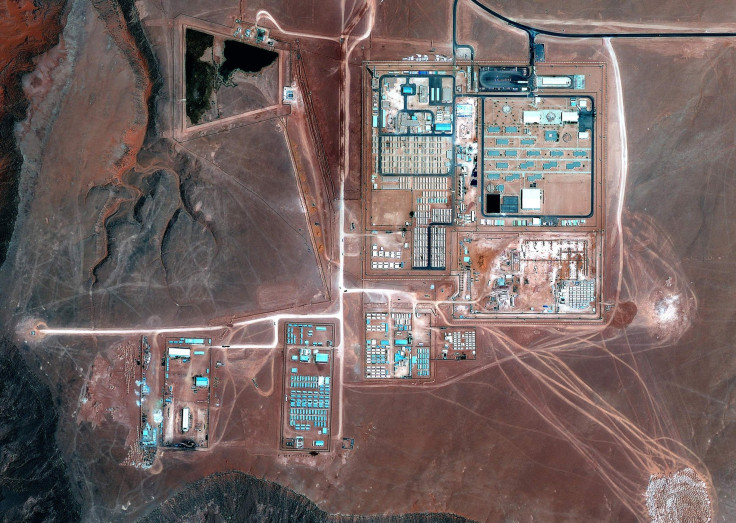Algerian Hostage Crisis: 11 Terrorists Die In Raid After Killing 7 Hostages

A four-day hostage situation at the Ain Amenas natural-gas complex in Algeria ended on Saturday with seven hostages dead as the country’s special forces stormed the facility, killing 11 terrorists involved in the crisis, according to the official Algerian state news agency.
The Algerian Press Service reported on Saturday that an anonymous source said the terrorists killed the seven hostages “without determining their nationalities.”
In total, at least 23 hostages and 32 terrorists died in the four-day stand-off, according to Algerian officials, the BBC reported.
UK Prime Minister David Cameron said that the crisis was over after calling Algerian Prime Minister Abdelmalek Sellal, according to the BBC.
Still, details are murky about whether all the militants were killed or whether any remaining hostages are still alive.
What is clear is that the crisis at the plant, which is jointly run by BP, Norway's Statoil and the country's state-owned oil company, has led to an international outcry as several countries remain worried about the fate of their citizens at the plant.
The al-Qaida-linked terrorists began taking dozens of foreigners and hundreds of Algerians hostage Wednesday. Since then, the Algerian government has tightly held information about the hostage crisis. Algeria’s government also asked that Western governments stand aside while it conducts its military operations.
A number of Americans were among the hostages, and the U.S. State Department confirmed on Friday that one American, Frederick Buttaccio, of Katy, Texas, was dead. Algerian authorities on Wednesday had estimated that some 30 militants were holed up in the Ain Amenas complex, with 18 already reported dead.
The Associated Press reported that Algerian helicopters began opening fire on a convoy carrying both kidnappers and hostages on Thursday, causing several deaths. Militants had revealed in a final communication that they were in possession of seven hostages -- three Belgians, two Americans, one Japanese and one Briton -- and threatened to kill them if the army carried out an assault.
Prior to Saturday’s raid, Algeria’s state news agency reported that nearly 100 foreign hostages were freed, but that a reported more than 30 others were still unaccounted for.
Not shying away from calling the incident “an act of terror,” Secretary of State Hillary Clinton told reporters on Friday that she has been in contact with Algeria's Prime Minister Abdelmalek Sellal again, urging that the "utmost care be taken" to protect the hostages. At that time, he told her the operation was ongoing and that "the situation remained fluid, that the hostages remain in danger in a number of instances."
Clinton didn't provide further details, citing security reasons.
"This is an extremely difficult and dangerous situation," Clinton said. "No one knows better than Algeria how ruthless these groups are. After all, they fought a very terrible war against them for a number of years, with great loss of life. So we are staying in close touch with our Algerian partners and working with affected nations like our Japanese friends around the world to help end this crisis."
"But let’s not forget this is an act of terror," she added. "The perpetrators are the terrorists. They are the ones who have assaulted this facility, have taken hostage Algerians and others from around the world who were going about their daily business. And it is absolutely essential that while we work to resolve this particular terrible situation, we continue to broaden and deepen our counterterrorism cooperation, something that the Foreign Minister and I discussed at some length. It is not only cooperation with Algeria, it is international cooperation against a common threat."
© Copyright IBTimes 2025. All rights reserved.






















